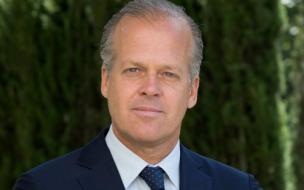The MBA Felix splashed €61,700 on has paid dividends. He enrolled at Barcelona’s ESADE Business School in 2014. A year later, the world’s best known management consultancy cold-called Felix to pitch him a job. He’ll enter McKinsey’s private equity practice as an associate in June.
One of ESADE’s youngest MBAs, at 26, the German joined the school after 2.5 years at Deloitte, the professional services firm. In under two years, he rose to the rank of senior consultant in Deloitte’s M&A transaction advisory services wing.
Before that, Felix cut his teeth at Gardnyr Michael Capital, a boutique investment bank in Alabama, US. He studied finance and economics nearby at Spring Hill College.
During the MBA degree, Felix served as president of ESADE’s Finance Club and spent three months on exchange at Chicago’s Booth School of Business.
What are your tips for other MBAs for getting hired by McKinsey?
There are a couple of hurdles you can’t influence. They look at your high school diploma, undergraduate degree and GMAT score. But once you get that interview, I would prepare with McKinsey-specific case studies. [In my opinion], they are different and more structured than Boston Consulting Group’s or Bain & Company’s cases.
McKinsey also have three principles, and they want to hear at least one story or one experience from your previous work in a high level of detail, which relates to the principles.
You should also be quick on your feet. Be open-minded about the cases and don’t be scared to make solid recommendations. Because, at the end of the day, that’s what people pay McKinsey for.
How has the MBA helped you secure your position at McKinsey?
McKinsey contacted me because they saw my profile in the ESADE CV book. That was pretty neat.
Case study-thinking also helped. In the application process, McKinsey give you a wide case and they expect you to look at everything, from marketing and operations to the potential environmental impact of your solution.
The MBA has broadened my horizons. In my undergraduate degree the classes were not case study-based. What helped me was to have those case studies at ESADE that covered a broad range of areas.
When and why did you decide to begin an MBA?
To improve my leadership skills and get exposed to more senior people. I got my undergraduate degree in the US, so I wanted to stay in Europe for my MBA. I chose ESADE because I didn’t speak Spanish, and for its international cohort, and its focus on teamwork. From one subject to another, the team dynamic might change because of the background of the students.
My goal to get a masters degree — I’ve had it all along.
At the age of 26, did people doubt your experience entering the MBA program?
I have only two and a half years of full-time work experience. And normally the criteria is three years. So my admissions officer said this might be a problem. This was the weak spot in my profile. My GMAT score was good. My experience at Deloitte was good. He liked my international experience. But he said the length of experience might be trouble.
I was a little intimidated coming to ESADE. But nobody ever really asked my age. I was direct and outspoken in class; people were surprised when they learned of my age. My height also had something to do with it — I’m six foot seven.
You were promoted to senior consultant at Deloitte after less than two years. What’s your advice for MBAs hoping to progress in the firm?
Expect to learn; be open to learning a lot, especially in the first six months. But don’t let that crush your confidence. I sometimes was frustrated because, I’m not stupid, but there were a lot of mistakes to make. You have to expect to be educated on the job by other consultants.
What unique experiences did you have on your exchange to Chicago Booth?
The focus of Chicago Booth is different; it’s very finance driven, and since that is my background and what I wanted to do after the MBA, I opted for the exchange. At Booth, I took the entrepreneurial finance, private equity and negotiation classes. And also quite an advanced Excel modelling class.
Those finance classes were unique. The teaching style was different; it was a little more formal. At ESADE, through the teamwork, people know each other and it gets less formal in class at times. At Booth, people don’t know each other as well and they don’t interact with each other as much out of class, so it’s more strict and professional.
How is the finance club able to provide career opportunities for its members?
The idea was not to get people a job but to expose people. People at that stage in their careers are old enough to use career services to get a job or synthesize their own opportunities from networking. I didn’t spend my time trying to get members internships.
It was very driven by investment banking before I joined. We tried to broaden the spectrum a little bit. We visited Amazon and Siemens. And EY and Deutsche Bank.
RECAPTHA :
42
9d
1b
de








